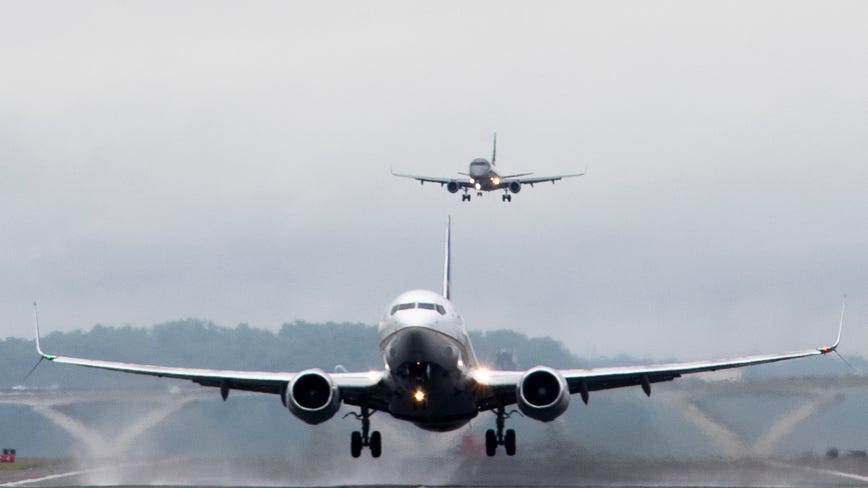Airlines seek more 5G protections, warning of massive travel disruptions

Airlines are concerned the 5G service upgrade could interfere with radio altimeters.
Getty Images
The chief executives of US airlines and cargo carriers on Monday warned that a new?5G?wireless service set to go live this week could cause massive disruptions to travel and shipping unless implementation of that service is delayed within a 2-mile radius of airport runways.
The executives asked US officials to “take whatever action necessary to ensure that 5G is deployed except when towers are too close to airport runways until the FAA can determine how that can be safely accomplished without catastrophic disruption,” according to a letter sent to Biden administration officials on Monday.
They warned that disruptions to airplanes’ instruments from 5G signals on the C-band airwaves could ground “huge swaths” of the US fleet, subjecting more than 1,100 flights and 100,000 passengers in a single day to cancellations, diversions or delays. They urged US officials to delay deployment of the service within 2 miles of affected runways.
“Immediate intervention is needed to avoid significant operational disruption to air passengers, shippers, supply chain and delivery of needed medical supplies,” they wrote in a letter to White House National Economic Council Director Brian Deese, Transportation Secretary Pete Buttigieg, FAA Administrator Steve Dickson and Federal Communications Commission Chairwoman Jessica Rosenworcel.
Representatives for AT&T and Verizon said in separate statements Tuesday that they have?voluntarily decided to limit their 5G networks around airports.
The radio airwaves, which the carriers spent a combined $70 billion acquiring last year, are expected to?offer faster and wider-reaching signals, improving on the relatively short range of higher-speed millimeter-wave 5G and providing speedier connections than the 4G LTE-like low-band 5G. But the aviation industry argued those radio airwaves may interact with aircraft instruments.
Verizon and AT&T had planned to launch their upgraded 5G networks in early January but agreed to a two-week delay, bowing to pressure from the Federal Aviation Administration, the airline companies and Buttigieg. The delay was requested due to concern that these 5G signals, which use the C-band spectrum rather than other airwaves already in use for 5G services, could interfere with radio altimeters, which rely on similar signals to measure how far above the ground an airplane is at any given time.
Carriers proposed safety measures in November to ensure that cell towers don’t interfere with aircraft signals, including lowering tower power levels nationwide with even stricter limits around airports and helipads. Prior to agreeing to the delay, the carriers offered to create special exclusion zones around airports where they wouldn’t deploy C-band 5G for six months.?
The letter comes after the FAA said Sunday it had cleared an estimated 45% of the US commercial airplane fleet to perform low-visibility landings at airports where the new 5G service would be deployed.